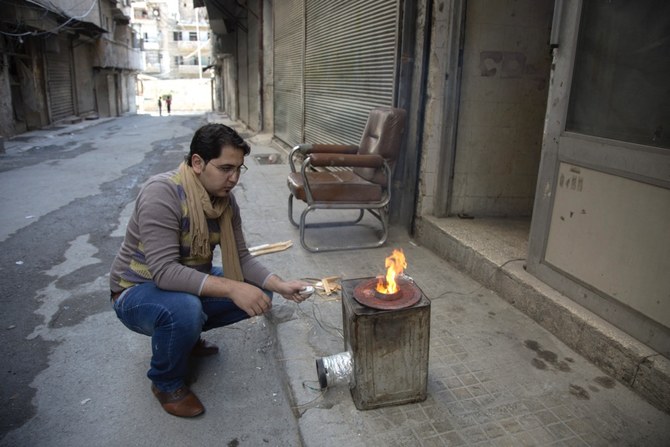Quick action required to address energy poverty causing unrest

https://arab.news/86u7z
As inflation takes hold in most parts of the world, the poor and those living on the edge of poverty experience this more than those who are better off. They feel it in the prices of food, housing, health, education, and clothing. They also feel it in the increase of the price of energy and in energy poverty, which so many live in or are falling into.
Riots have broken out in Sri Lanka and Peru, partially driven by increased energy poverty. Such riots could spread to other regions.
The energy expenses of the poor and the near-poor are a much bigger part of their overall costs than for the rest of us. Many live in constant fear about energy costs and access.
More privileged people take energy for granted. It helps heat and cool houses. It helps us cook dinners. It lights homes and offices. It helps keep water clean and helps make fresh water out of saltwater. Energy helps with communication and information technology. Energy helps us stay connected with family and friends. Energy allows travel in cars, buses, trains, planes, and helps transport food, furniture and so much more right to doorsteps.
Energy lights schools so children can learn. Energy cools and preserves medicines for the infirm, the elderly, and those with chronic illnesses. Energy helps keep vaccines effective. Energy helps clean and dry clothes in machines that do all that work. Security systems and outdoor lighting use energy. Police and other first responders are more effective with energy to help them with all the things they need to do. Armies work better with energy.
The quality of life of those in privileged parts of the world is much higher with energy than without it. The expected lifetimes of those with good and reliable energy systems are longer and are of remarkably higher quality than those who do not have these. There is a clear connection between human development and access to affordable, dependable, and secure energy.
About 800 million people in the world have no access to modern energy systems. The energy they use is often biomass or waste. More than 2 billion people either have no access or unreliable access to modern energy systems. Even more people do not have access to clean fuels for cooking.
They cook with wood, agricultural waste, and whatever they can find. And often the cooking is inside the home. I saw this while visiting a rural home in East Africa. The young children and the women were inside a wooden shack that was full of cooking smoke.
The biggest source of illness and early deaths in some areas of the world is indoor pollution from cooking.
If larger numbers of people fall into energy poverty quickly that may lead to a national disaster, with consequences for security and stability.
Dr. Paul Sullivan
Women and girls collect wood and other scraps for cooking in many poorer parts of the world. They are also the ones who collect water. Few of these poor women and girls can go to school given their other responsibilities. With reliable energy and energy-enabled piped water, they would have time for school. And they and their present and future families would lead much improved lives.
About 5,000 children die each day from dirty, untreated water. More children have died from dirty water than from conflicts in recent years. Close to 4 million people die each year from water-borne diseases. Having sources of reliable energy for water treatment could reduce those numbers.
In parts of the world, especially in sub-Saharan Africa, more people do not have electricity than those that do. Try living a day, a week, a month, a year, a lifetime without electricity. The amount of electricity available for a year for energy-poor Africans is about the same as the electricity a person in a richer country uses to run a modest refrigerator.
In parts of the world charging a cellphone may mean walking to the local village and paying to charge it via truck, or other batteries. This is often far more expensive than it would be to charge it using a local microgrid, or a larger grid. The overall costs for water in rural villages are often far higher than for the richer people in cities who have energy-aided municipal water systems.
It can be heartbreaking to think of the energy-poor in other countries. However, we should not forget the energy-poor in our midst. There is energy poverty in just about every country. Energy poverty exists in the US. It exists in the EU. It exists in the UK.
Frankly, if you look around enough, you will see it everywhere.
With the startling increases in energy prices, we need to think hard about energy poverty. Think about freezing or overheating older people and children in apartments even in the rich world, whose health is at risk from a lack of energy. Think of those who must give up food, education, healthcare, and even live in lesser housing because of accelerating energy prices.
Falling into energy poverty is a personal disaster. If larger numbers of people fall into energy poverty quickly that may lead to a national disaster, with consequences for security and stability.
Will more people get sick or die from increased energy poverty? Will more people riot and demonstrate due to increased energy poverty? Will conflict arise as a result of higher energy poverty levels? Could crime increase due to increased energy poverty? Unfortunately, the answer to all of these is yes. We need to acknowledge and solve these growing problems — and quickly.
• Dr. Paul Sullivan is a senior associate fellow at the King Faisal Center for Research and Islamic Studies and a nonresident senior fellow at the Atlantic Council










































